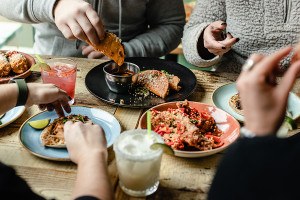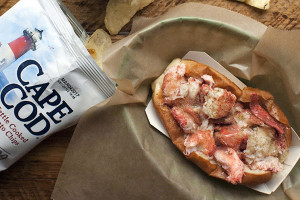Upside to the Economic Downturn
 Everyone’s talking about how the economic
Everyone’s talking about how the economic catastrophe correction is going to affect the restaurant world. I’m worried myself. Restaurants are important to Boston—culturally, economically—and they’re getting squeezed hard by higher food/fuel/healthcare costs at one side of the P&L sheet, and skittish customers on the other.
Less urgently, I worry about what it’ll do to food landscape. It seems like diners have just started getting over the comfort food fad in favor of less sedative, more adventurous fare. I like a nice bowl of mac n’ cheese as much as anybody, but it was getting stultifying. Just ask chefs. You think they want to make jazzy meatloaf every night?
Restaurants are trying different strategies to ride out the slump. They’re cutting food costs: Ronnie Savenor, owner of Savenor’s Market in Beacon Hill and Cambridge recently told me that the chefs who make up his wholesale clientele are looking for less expensive meats like short ribs and hangar steak (alas, those are the very cuts that tend to end up in comfort fare like braised ribs and steak frites).
Other high-end chefs are opening more affordable spots. Barbara Lynch’s next launch in the FP3 Project is a casual café called Sportello. Ming Tsai recently expanded Blue Ginger to include a less expensive Asian tapas lounge.
They’re also trying to lure customers with good deals. Finale has under-$10 “Early Bird” desserts and drinks; Rialto is doing $1 oyster Mondays; La Morra is launching prix fixe family-style Sunday suppers starting Nov. 2. And Persephone has its new Tuesday Night Supper Club program: three courses served family-style at a communal table for $40.
I checked it out last night and enjoyed a terrific meal: butternut squash soup with roasted apples and pomegranate seeds; Guinness-braised Northeast Farms beef shanks (yay! no short ribs!), and apple brown betty with malted vanilla ice cream. The menu was comforting, but too elegant to be called comfort food.
Persephone’s chef/owner Michael Leviton said Bostonians tend to be skittish at first about rubbing elbows at the shared table, but maybe this is just the kind of adaptation we need: a little less go-go-go and a little more how-do-you-do.


